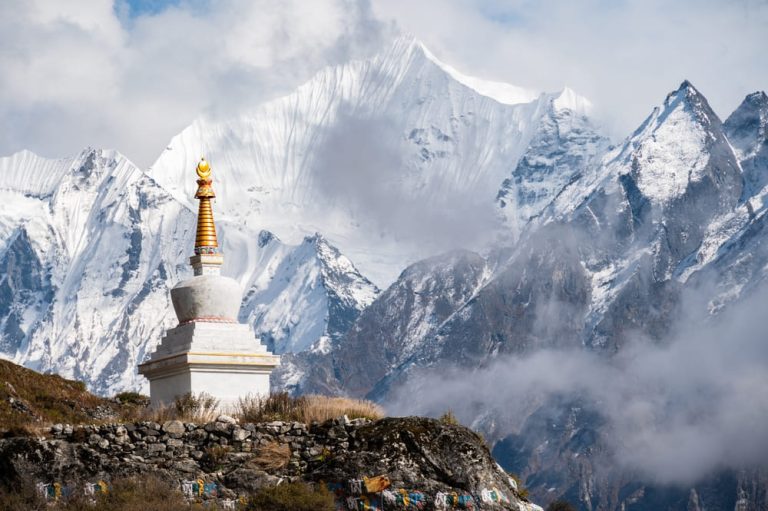Preparations for the ‘Sagarmatha Sambaad’ are moving forward quickly. The event will be held from May 16-18 in Kathmandu, Nepal. It will focus on the theme “Climate Change, Mountains, and the Future of Humanity.” The goal is to highlight the challenges faced by mountainous and coastal countries due to climate change. This dialogue forum aims to bring together experts, leaders, and stakeholders from around the world to discuss how to address these challenges.
The Importance of the Dialogue
The ‘Sagarmatha Sambaad’ is a significant event for Nepal. It will provide a platform to raise awareness about the environmental issues that threaten high-altitude and coastal areas. The dialogue will focus on finding solutions to the problems caused by climate change. Nepal hopes to use this event to advocate for the country’s needs, especially in dealing with the impacts of climate change.
Management Committee Formed
A management committee has been set up to organize the event. The committee met for the first time on Sunday. They decided to invite the heads of state and government from countries with mountains and coastal regions. Climate research experts, private sector representatives, and influential figures will also be invited. The committee is led by Nepal’s Foreign Minister, Dr. Arzu Rana Deuba. The committee is working hard to prepare the infrastructure and programs for the event.
According to Maheshwor Dhakal, the joint-secretary of the Ministry of Forests and Environment, the committee has made significant progress. Dhakal also mentioned that the committee has formed an expert committee with 16 specialists from different sectors. The expert committee will help guide the event’s discussions.
Key Areas of Focus
The dialogue will address several key areas. One of the main topics will be capacity-building programs for Nepali personnel. These programs will focus on water resource management and other related fields. The event will also promote the exchange of knowledge and technology between Nepal and other nations. This exchange will focus on groundwater management, including monitoring and improving water quality, artificial recharge, and rainwater harvesting.
The committee also emphasized the importance of showcasing successful practices to combat climate change. These practices will be demonstrated by partner organizations. The goal is to share real-world examples and help others learn from them.
Reaching Local Communities
In addition to the main event, there will be dialogues held at the provincial level. These dialogues will involve local communities in the conversation about climate change. The committee is also organizing a dialogue focused on children and youth, as they are particularly vulnerable to the impacts of climate change. Several government ministries, including the Ministry of Foreign Affairs and the Ministry of Forests and Environment, will assign staff to help with the event.
The ‘Sagarmatha Sambaad’ will not only involve government officials but also the private sector, civil society, and environmental organizations. Together, they will work towards finding solutions for the climate crisis.
Nepal’s Role in the Global Dialogue
Nepal’s role in the global climate conversation is growing. Secretary of the Ministry of Forest and Environment, Deepak Kumar Kharal, explained that the event aims to amplify Nepal’s voice on climate change. Although Nepal contributes little to global greenhouse gas emissions, the country is highly vulnerable to climate change. The ‘Sagarmatha Sambaad’ will draw attention to the impact that climate change is having on Nepal’s mountainous regions.
One of Nepal’s goals for the dialogue is to seek compensation for the damages caused by climate change. Nepal also hopes to advocate for payment for its environmental services. The event will highlight Nepal’s efforts to preserve its natural resources, despite the challenges posed by global warming.
Global Temperature Rise and Its Impact
The ‘Sagarmatha Sambaad’ comes at a time when the world faces a serious climate crisis. According to the Paris Agreement, the goal is to limit global temperature rise to 1.5°C. However, projections show that the temperature may rise by 1.8°C by 2050. This rise could have severe consequences, especially in the mountains. Research indicates that two-thirds of the snow storage in the Himalayas could melt if temperatures rise by 1.8°C. This would have a huge impact on local communities and countries that depend on the mountain regions for water resources.
A Top Priority for Nepal
The government of Nepal sees the ‘Sagarmatha Sambaad’ as a top priority. Joint Secretary at the Ministry of Foreign Affairs, Dadhiram Bhandari, is leading the preparations for the event. He emphasized that the dialogue is important for Nepal to share its experiences and challenges. It is also an opportunity for Nepal to highlight the consequences of climate change in the country’s mountain regions.
The government is also keen on increasing international cooperation in the fight against climate change. The ‘Sagarmatha Sambaad’ will bring together leaders and experts to discuss how to address the climate crisis. Nepal hopes that the event will encourage greater collaboration to protect the environment for future generations.
As Nepal prepares to host the ‘Sagarmatha Sambaad,’ the country is positioning itself as a key player in global climate discussions. The event will be an important milestone in the country’s efforts to address the climate crisis. By bringing together world leaders, experts, and organizations, Nepal hopes to foster cooperation and develop practical solutions to the pressing environmental challenges that affect mountainous and coastal regions.
For more details and updates, visit Nepal Monitor.


